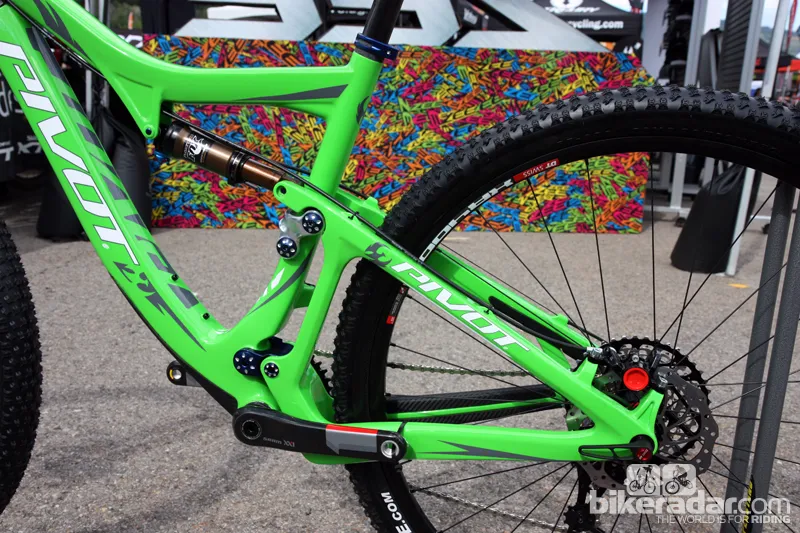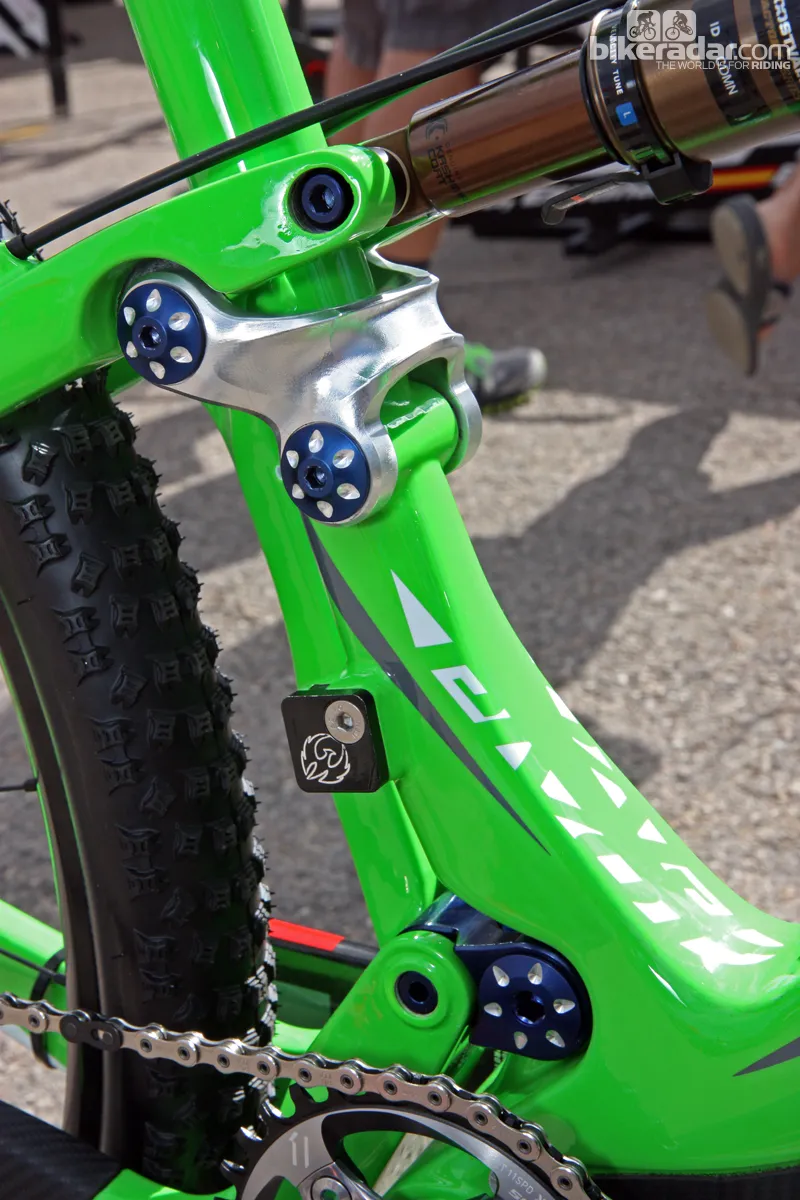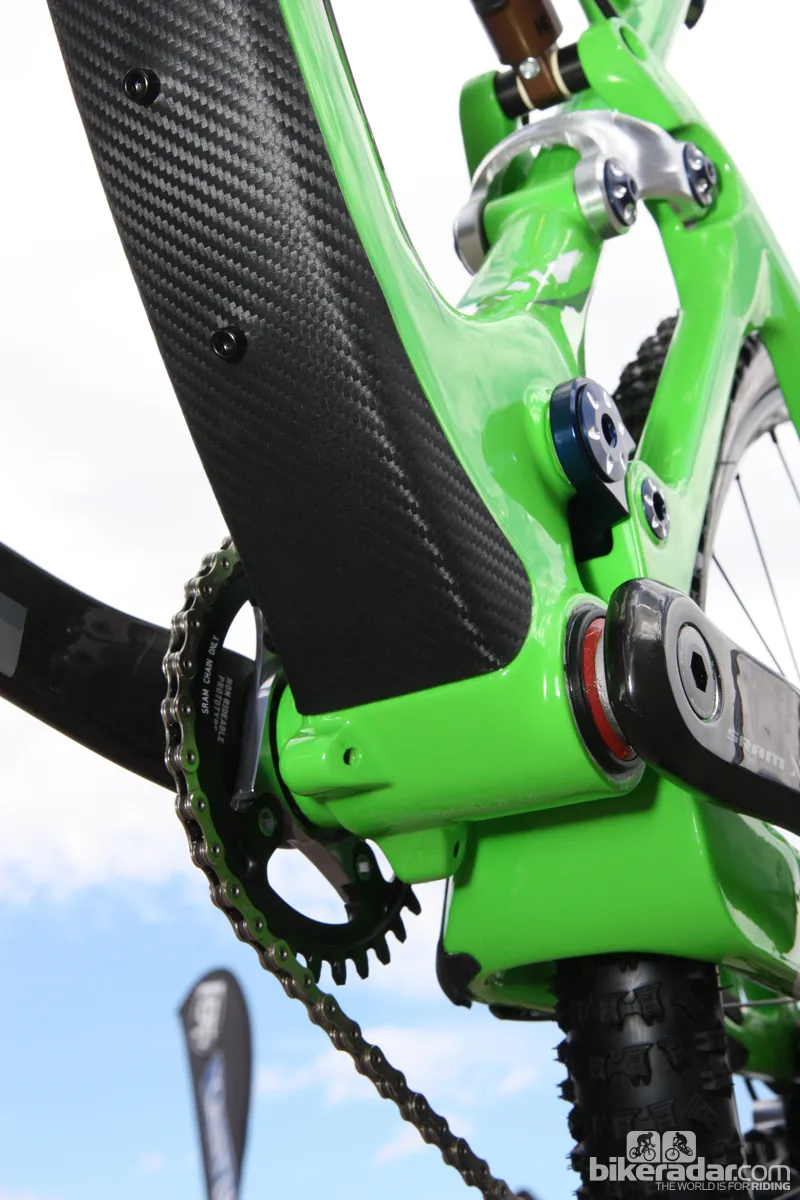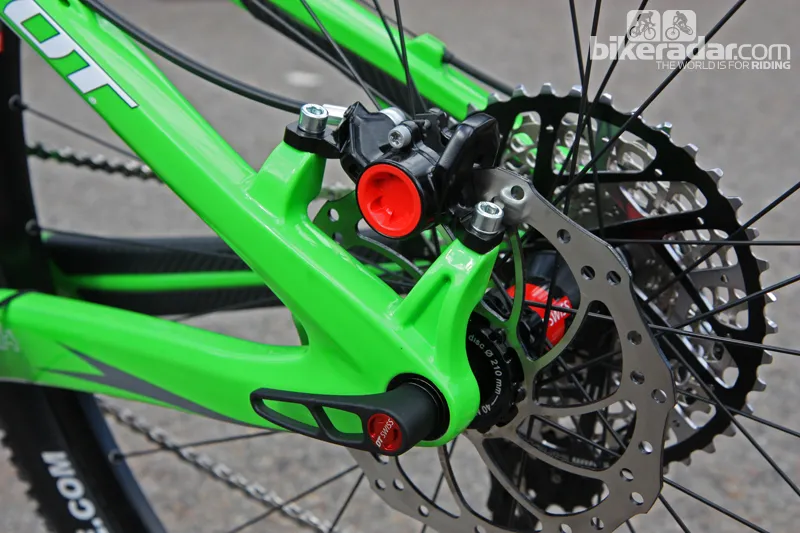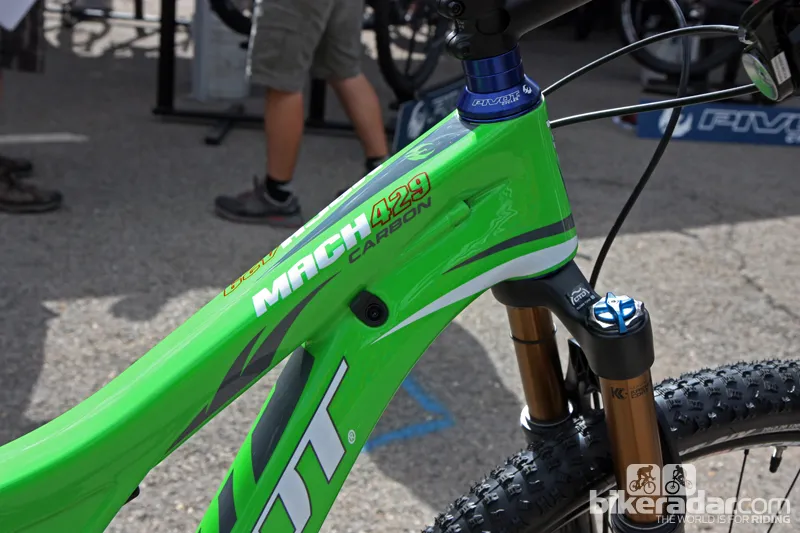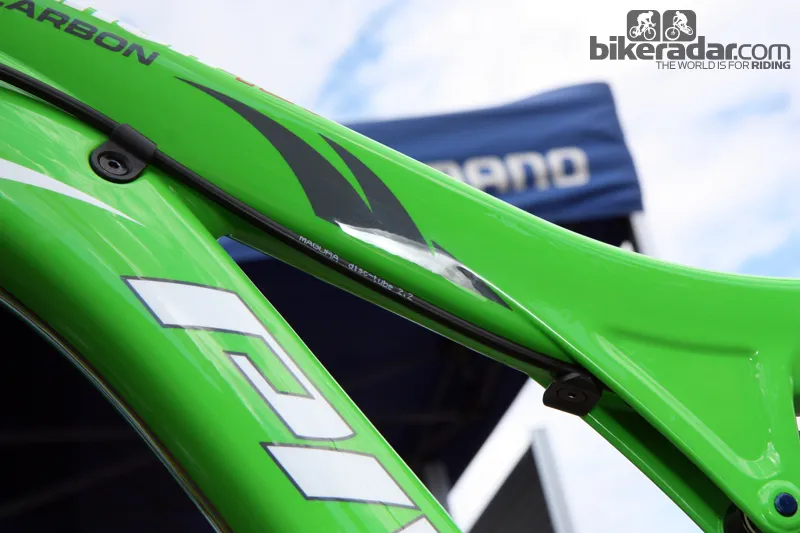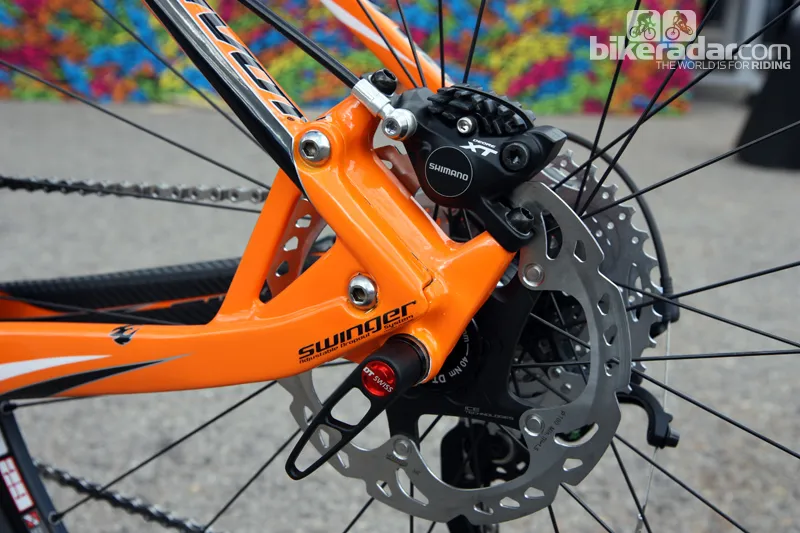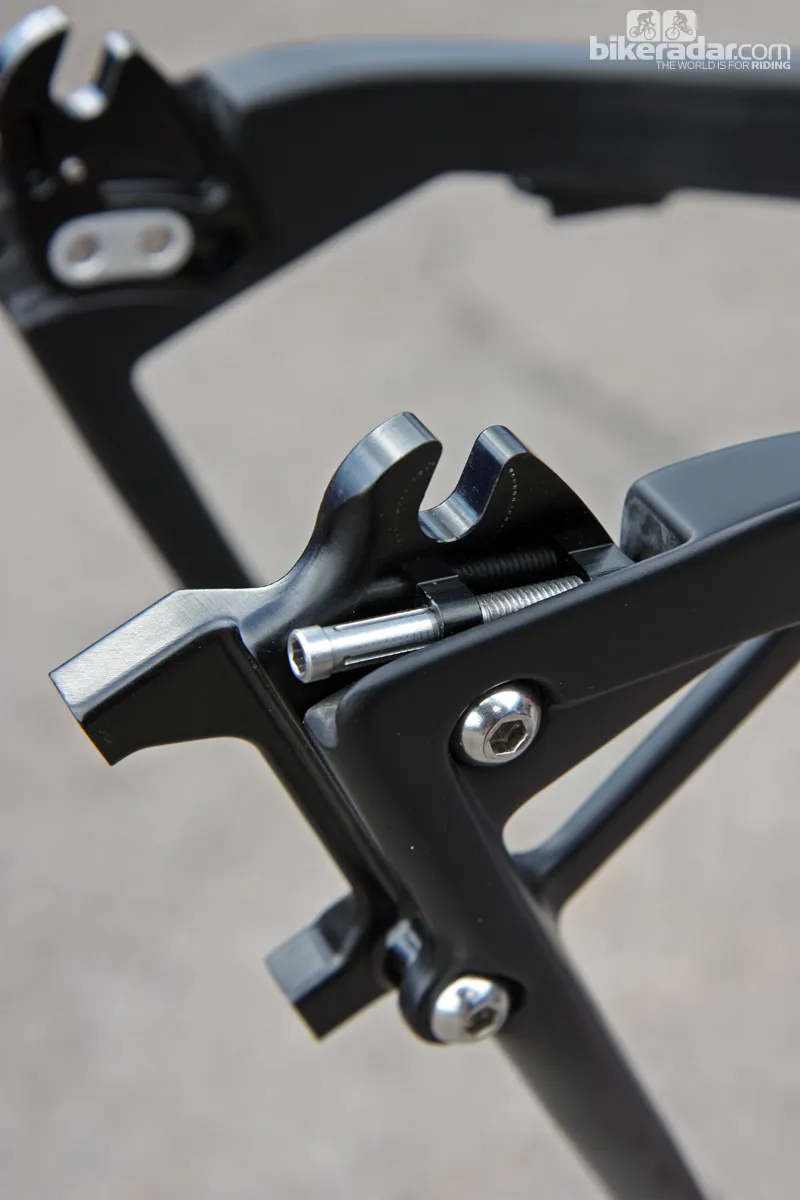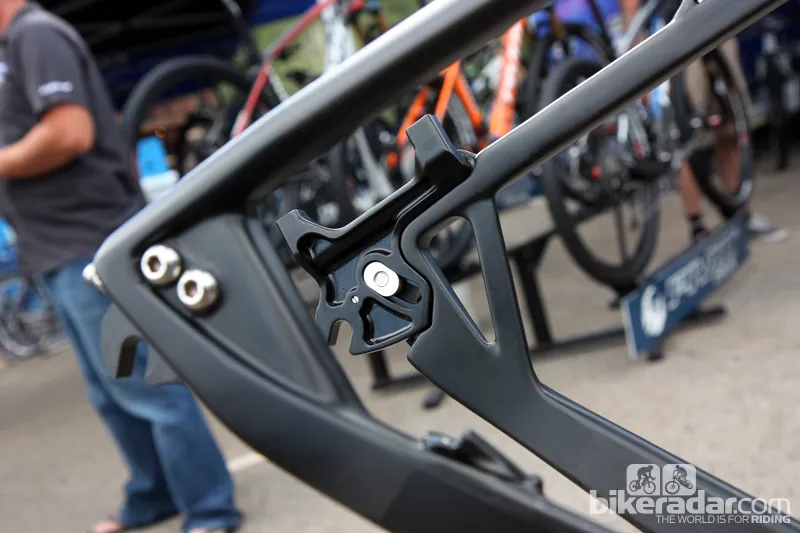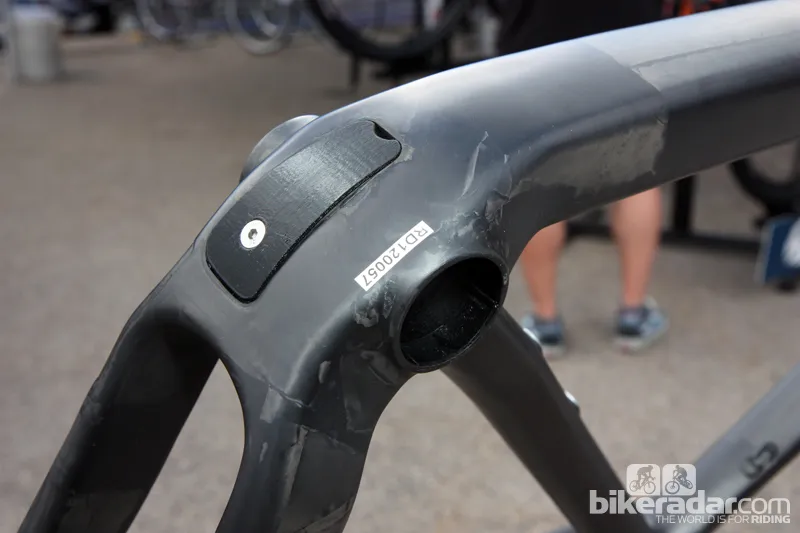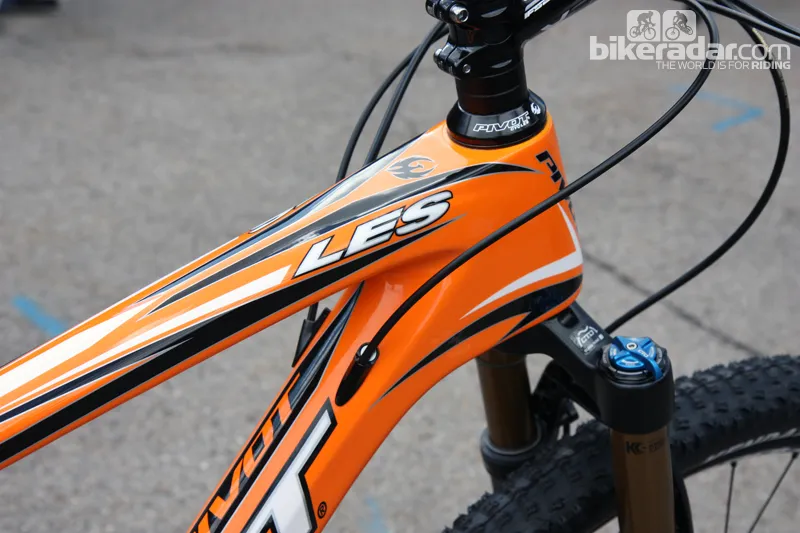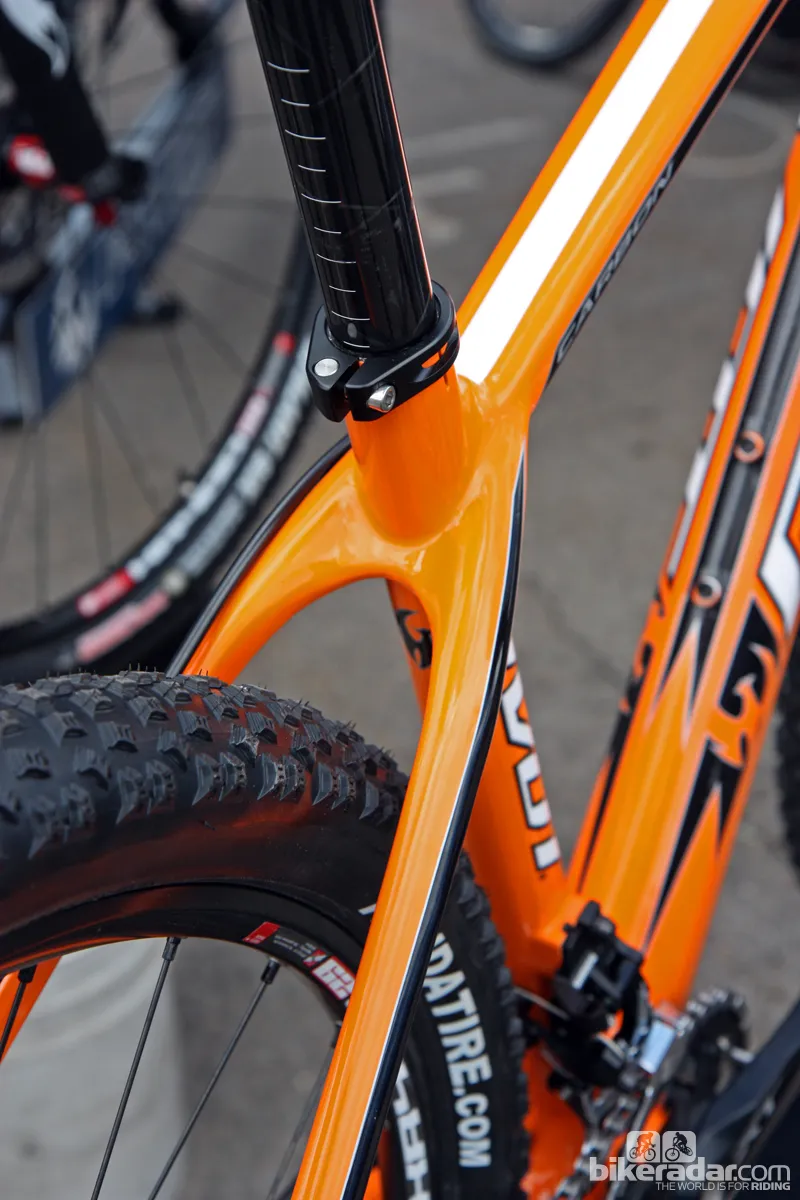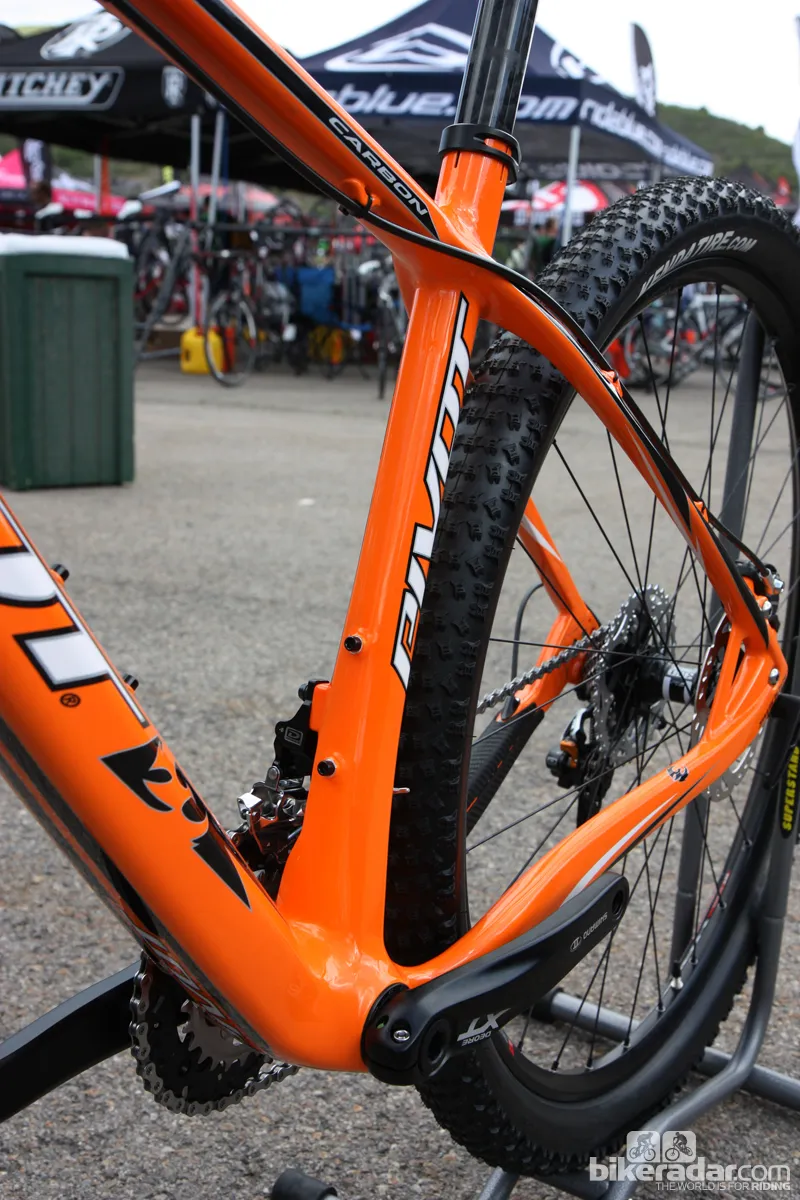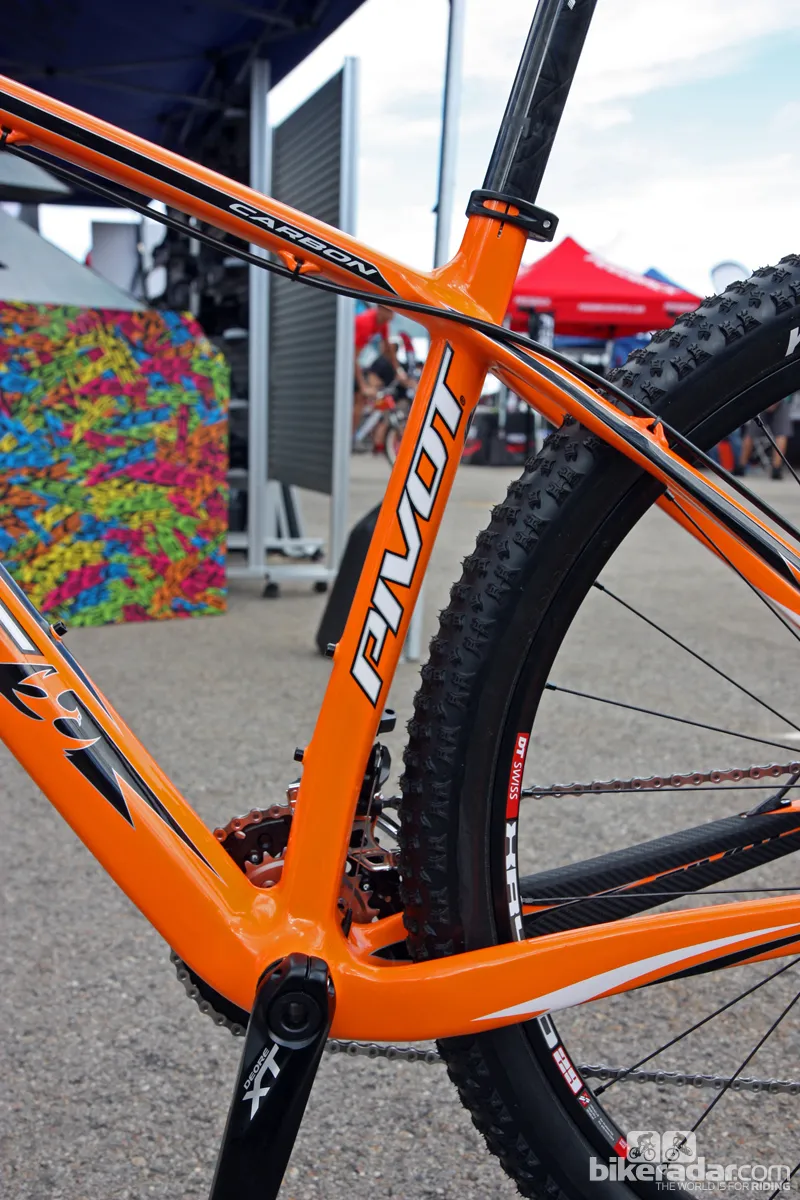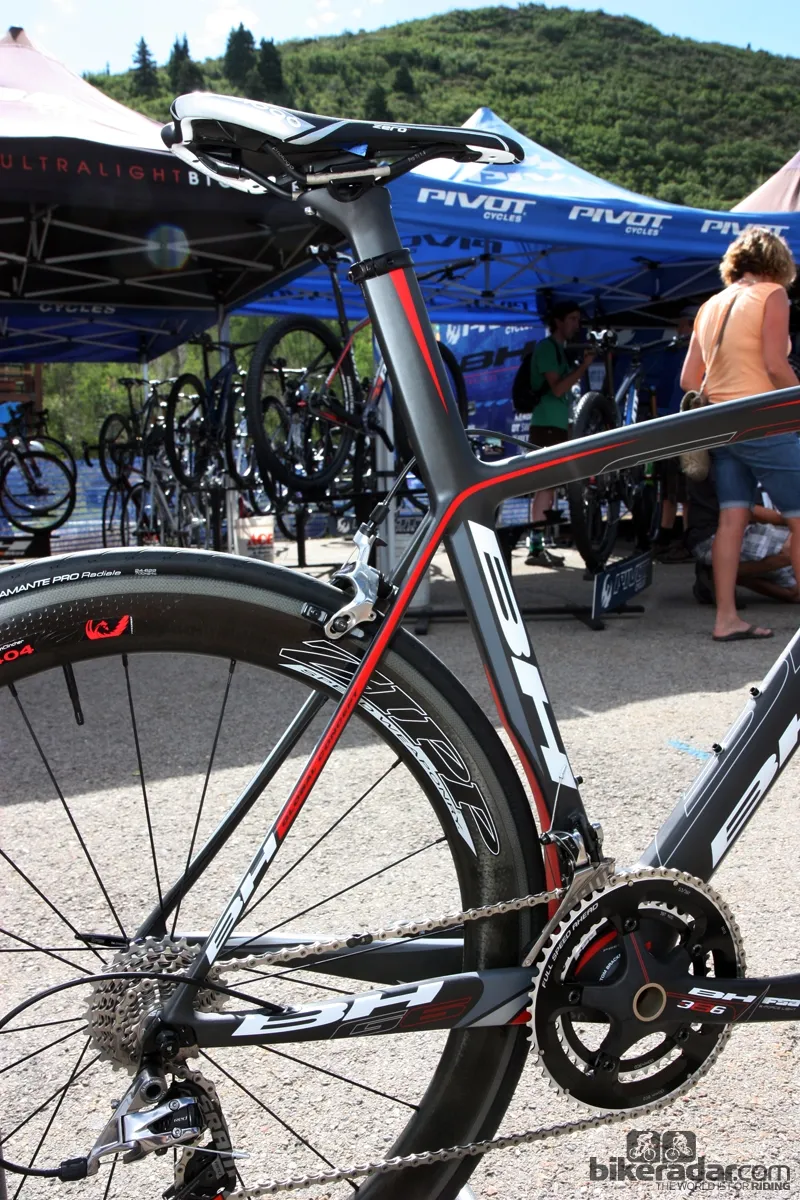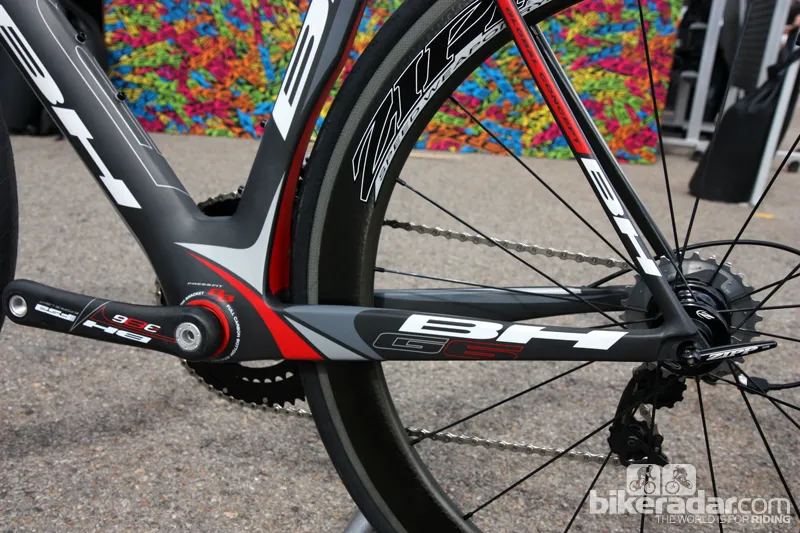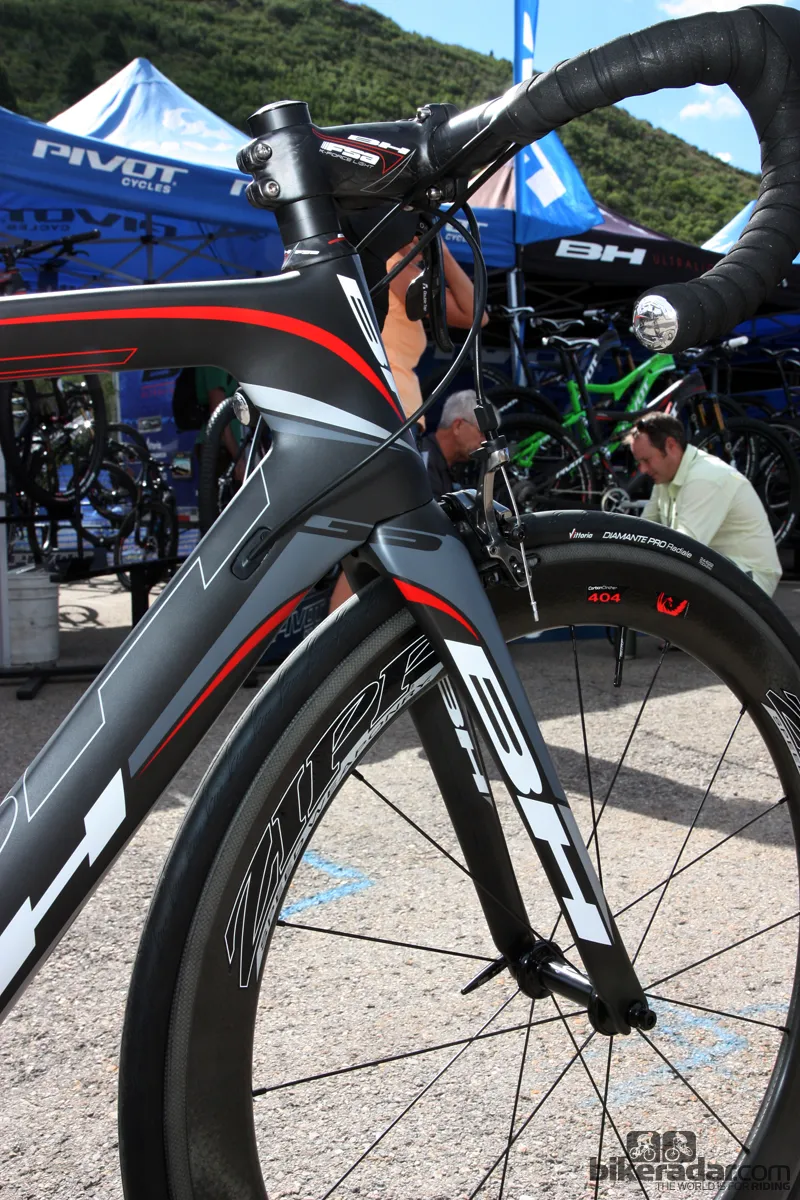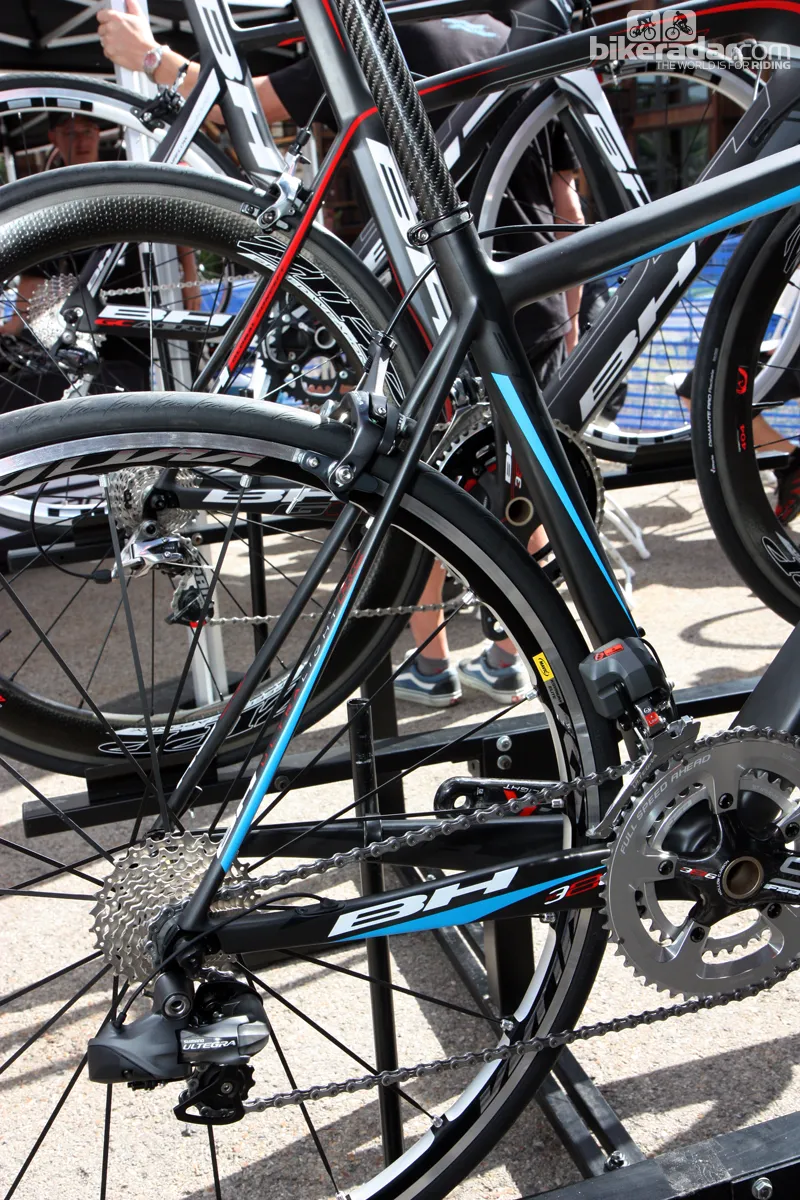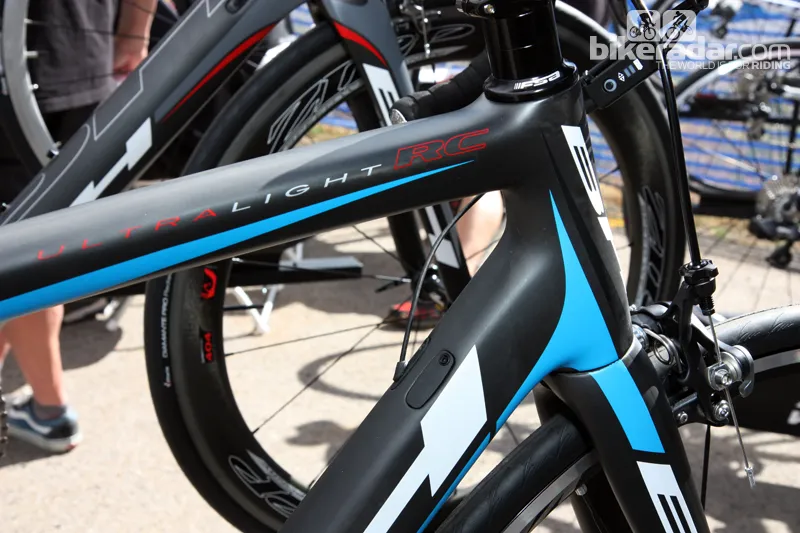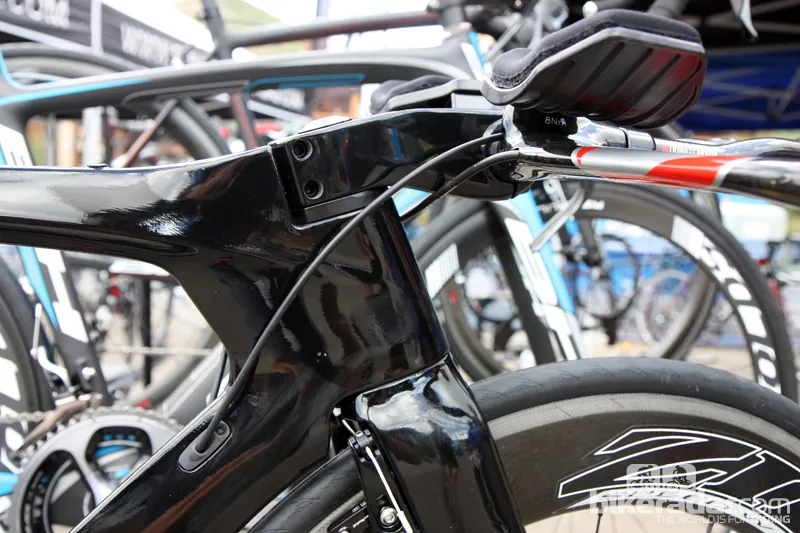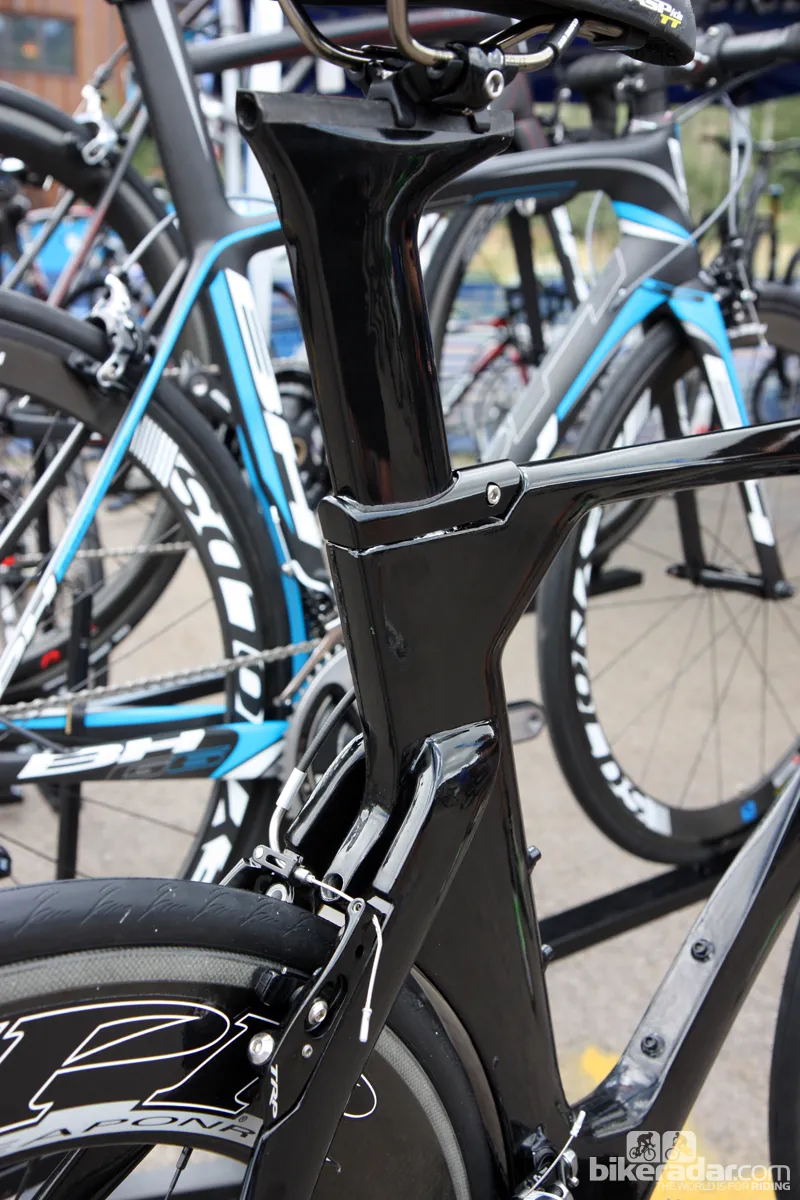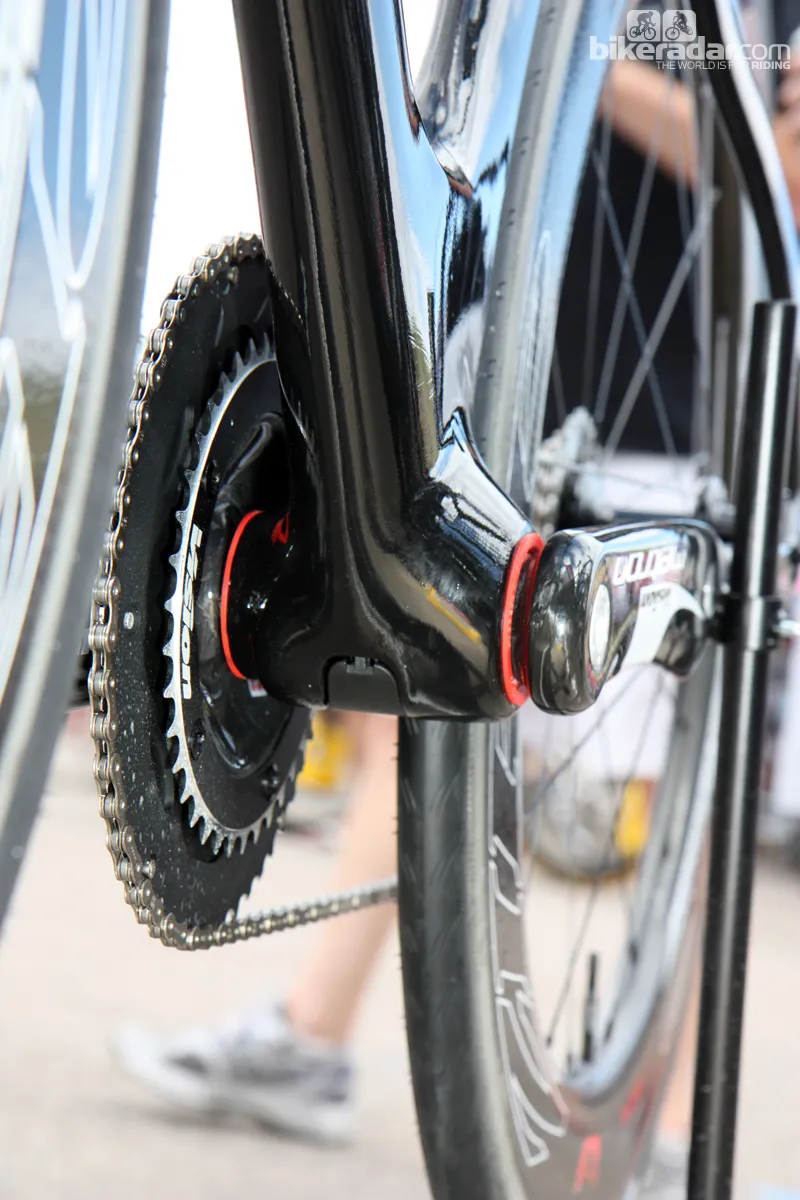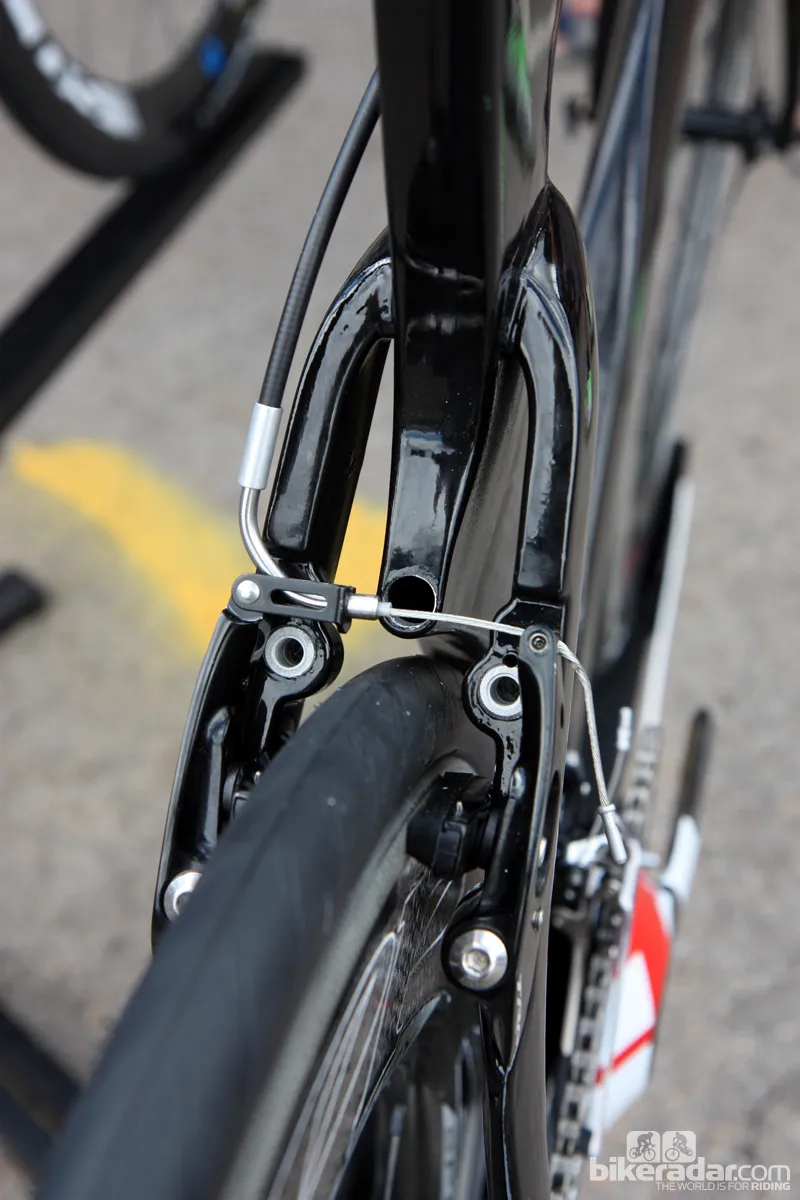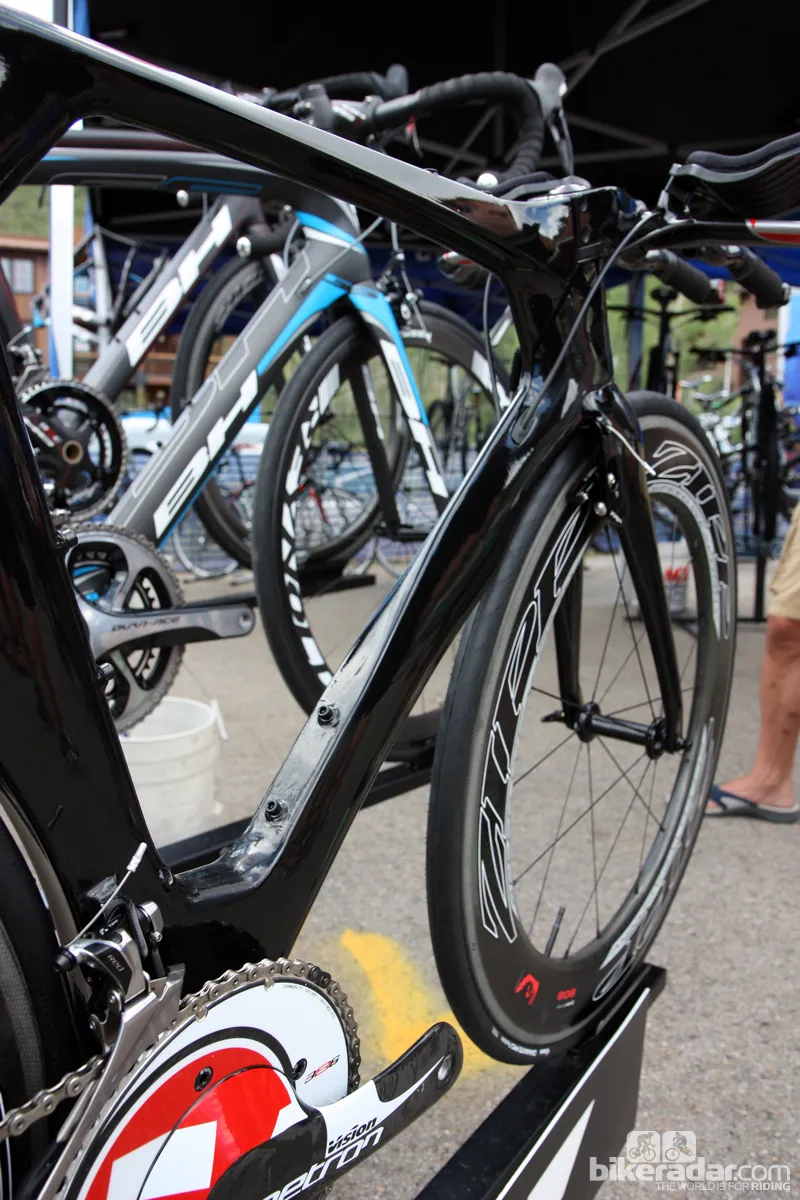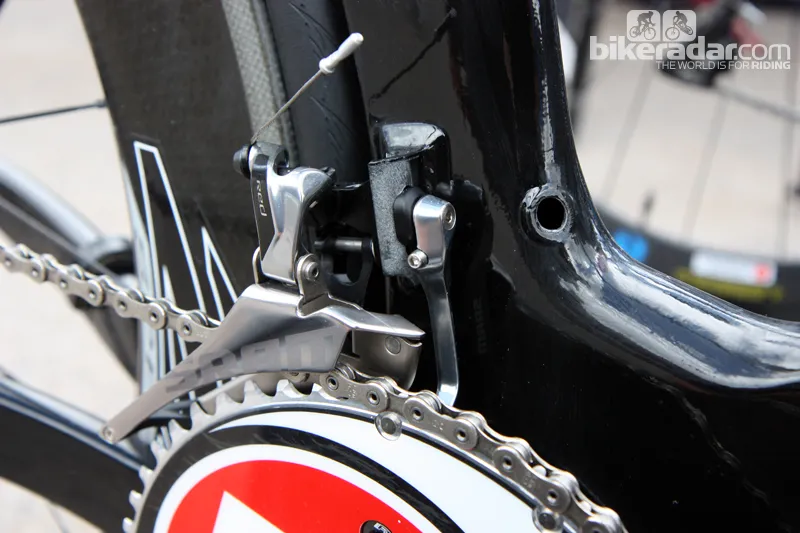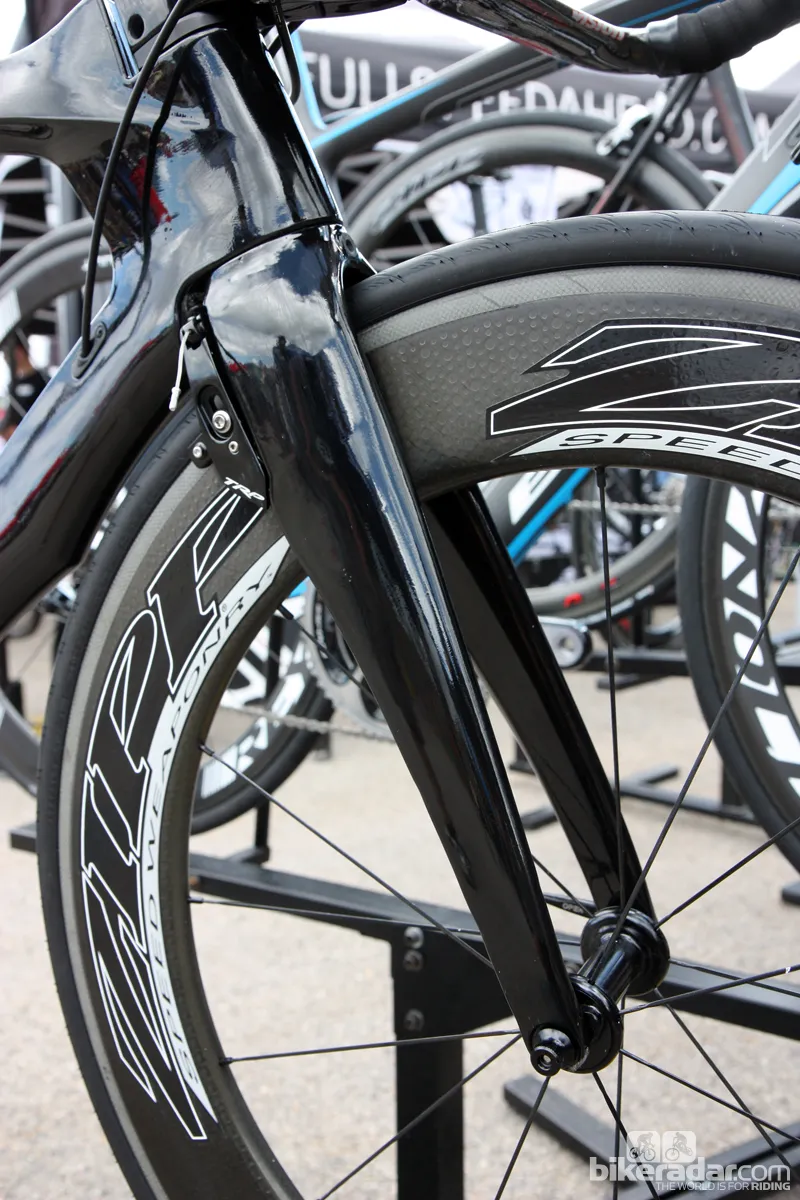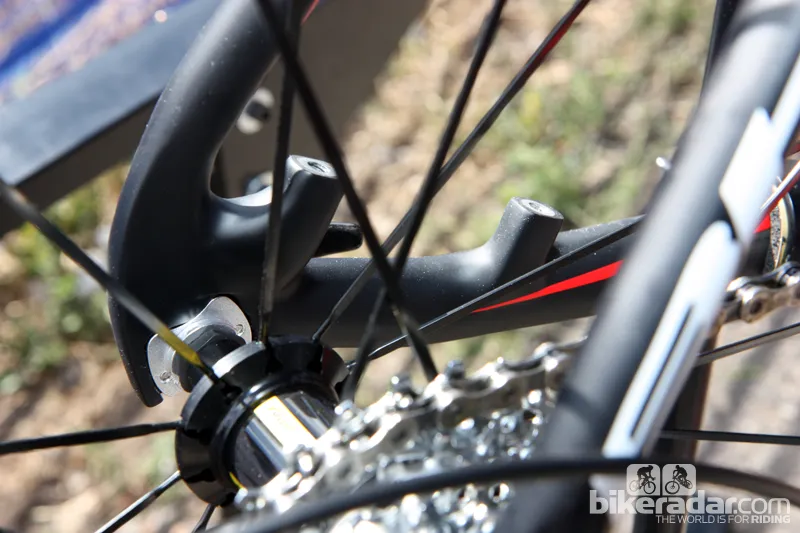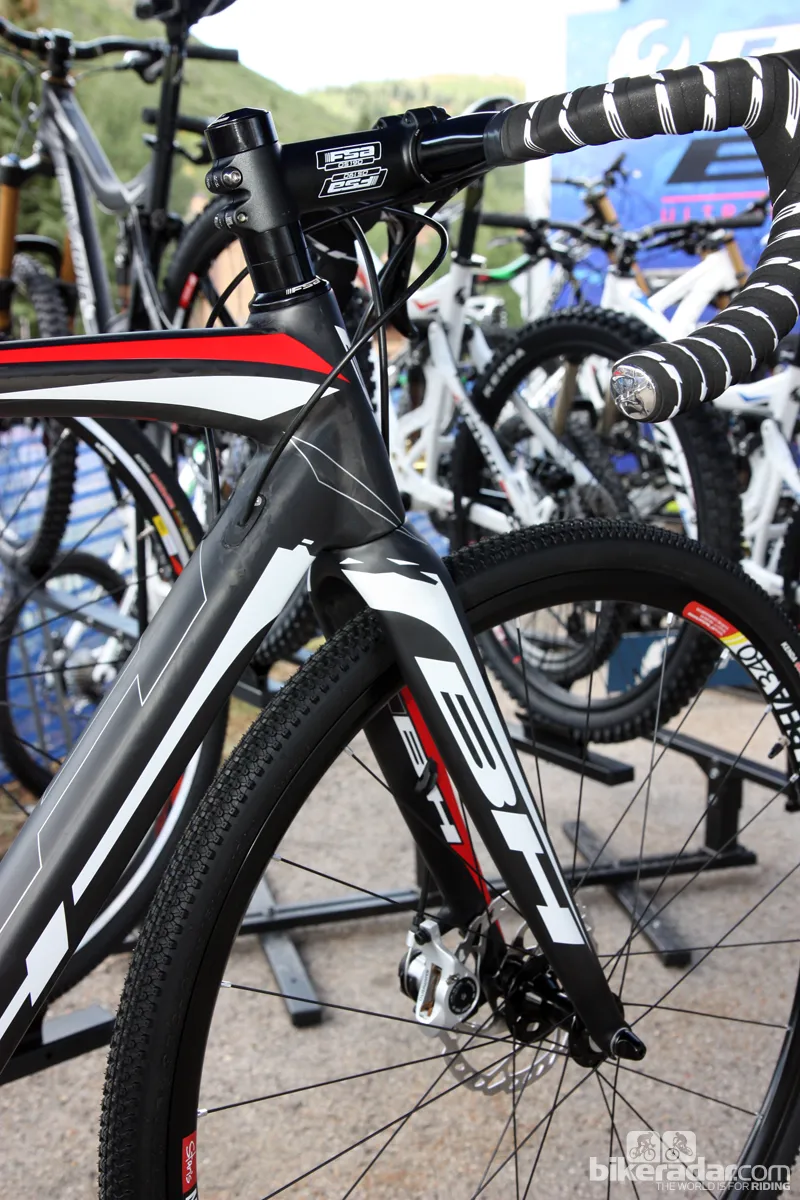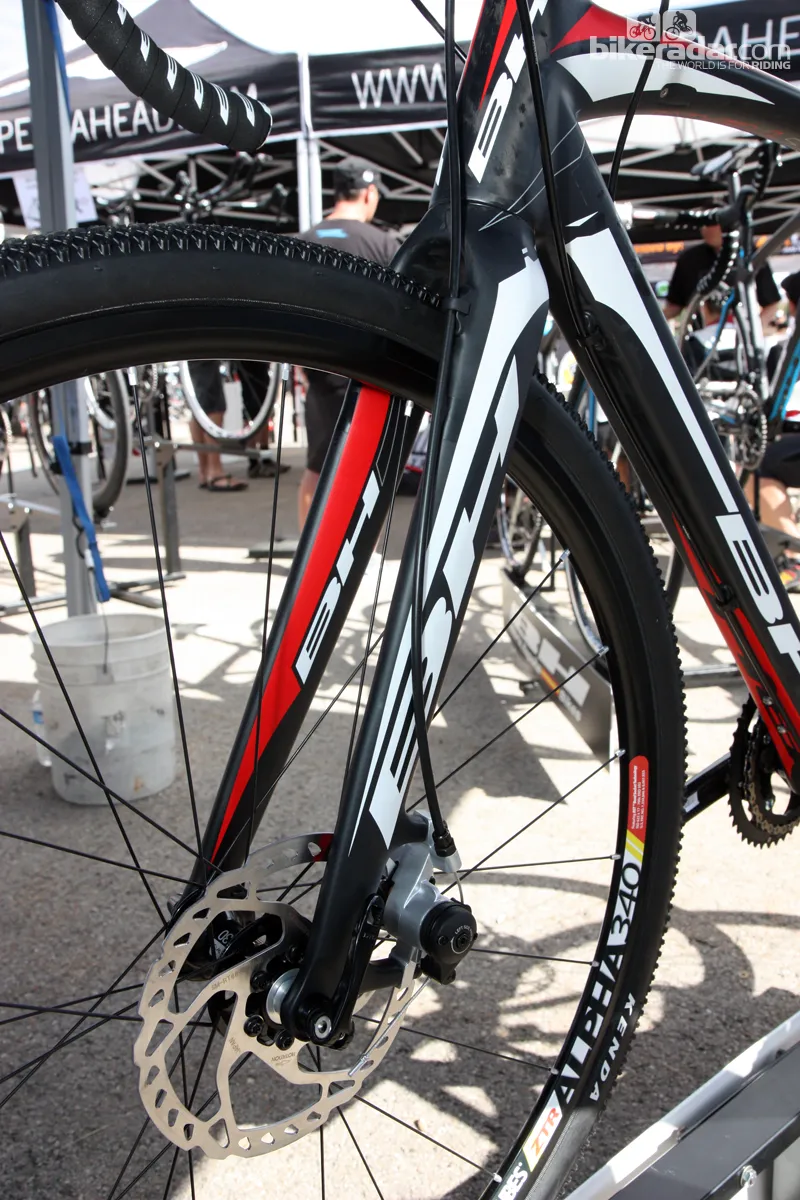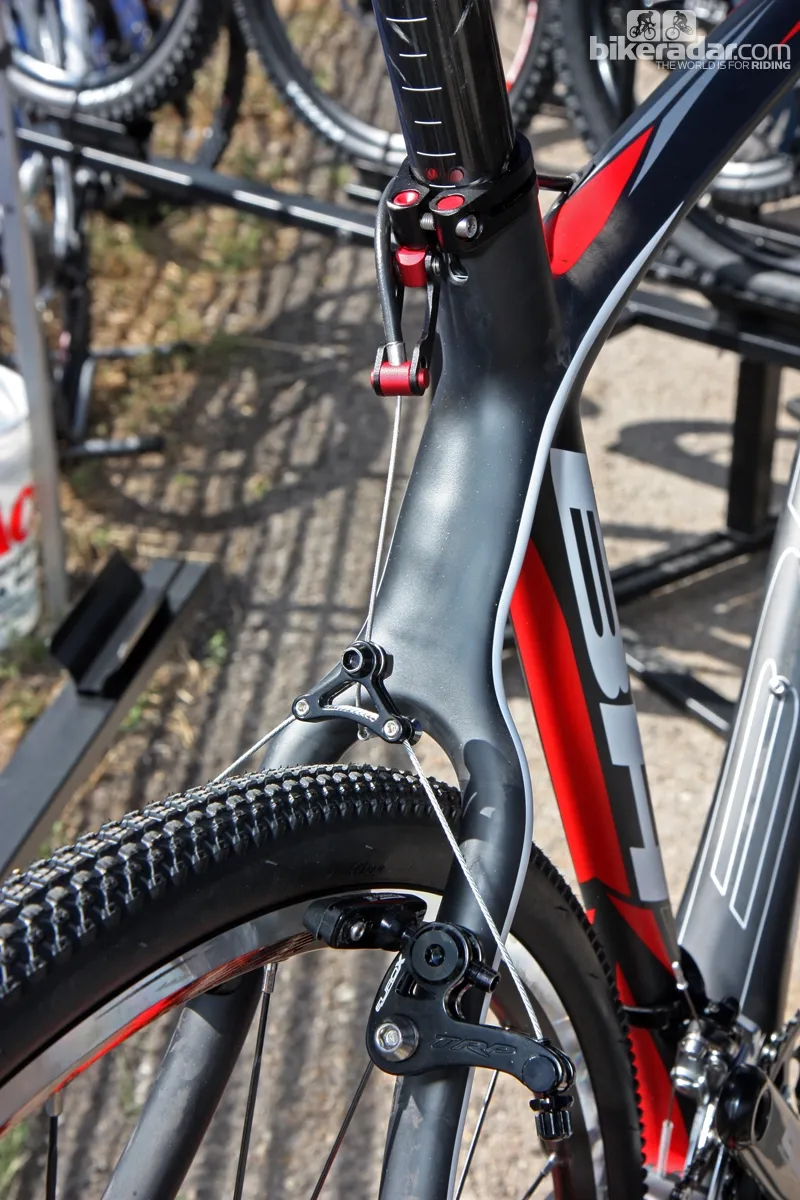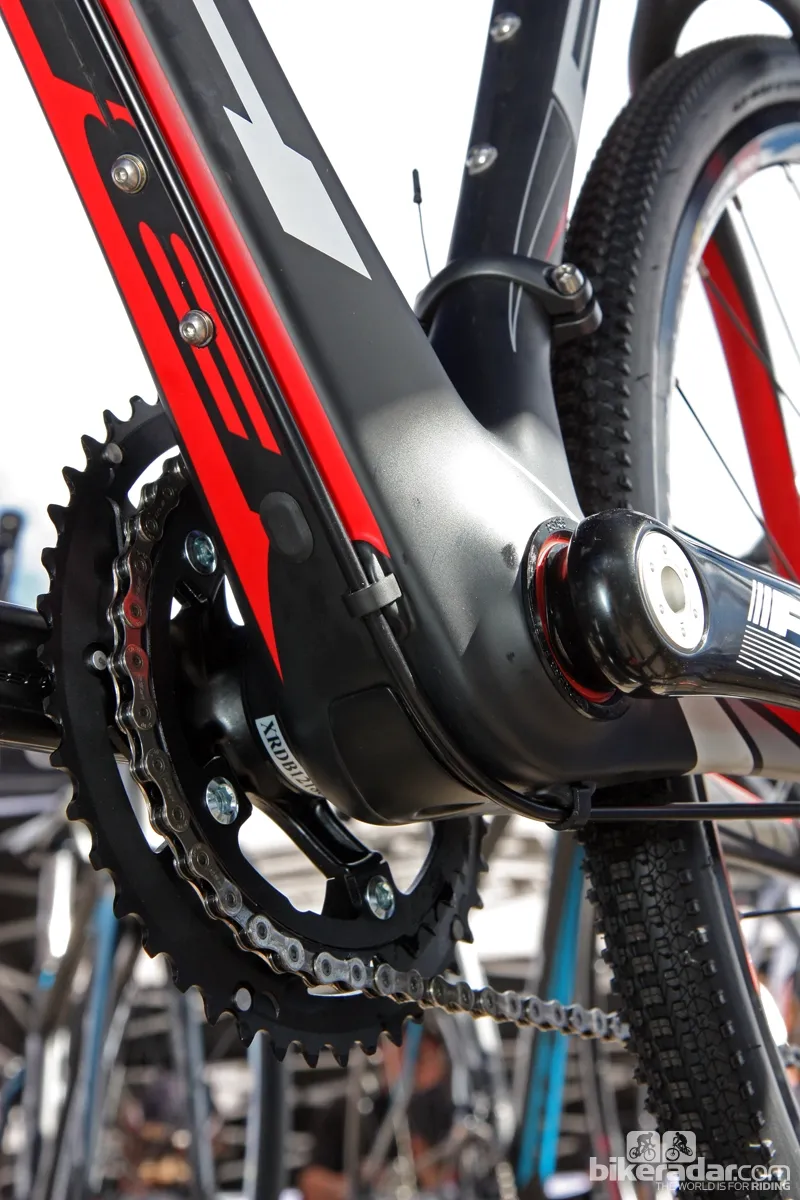Pivot Cycles have finally unveiled the carbon fiber version of the popular Mach 429 100mm travel, full-suspension 29er that many have long anticipated. While it's expectedly lighter and stiffer – by about 110g (0.25lb) and 12 percent respectively – the updated geometry and revised suspension should make it flat-out faster too.
Pivot have shortened the chain stays by about 8mm (0.3in). They've also made the bottom bracket just a hair lower, tightened up the wheelbase and increased the standover clearance by up to 40mm (1.55in) depending on bike size.
In addition, Pivot founder Chris Cocalis told BikeRadar that the new bike's DW-Link rear suspension will also feature a slightly shorter rear shock. This will supposedly lend a snappier feel and better damping control throughout the stroke.
In addition, Pivot have incorporated internal derailleur cable routing, neatly integrated dropper post routing, post-mount rear brake tabs, 142x12mm through-axle dropouts, molded-in ISCG tabs and a direct-mount front derailleur.
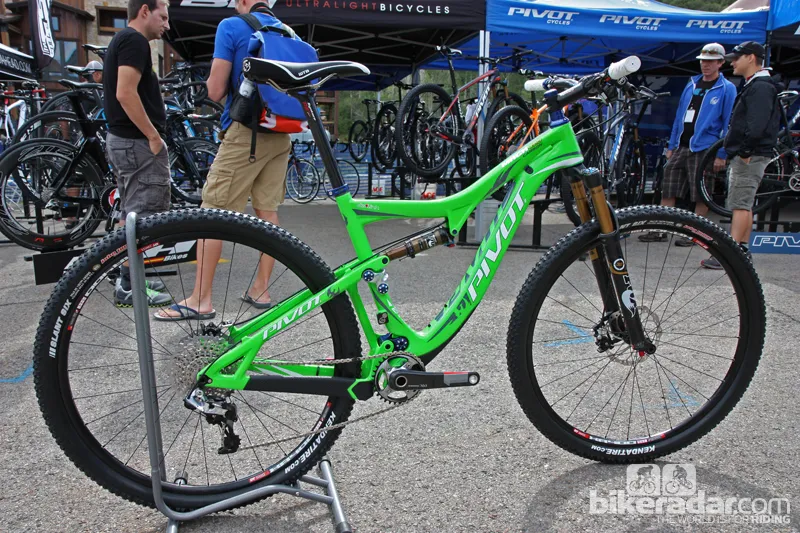
Pivot's loud new Mach 429 Carbon
Frame and shock pricing is set at US$2,799, while a complete Shimano Deore XT build will set you back US$5,250. Kits with SRAM's new XX1 or X0 groups or Shimano's complete XTR package will be offered as well. Projected availability is November 2012.
Coming in January 2013 is Pivot's first 29er carbon hardtail called the Les (get it?). Designed for use with 100-120mm forks, it's expectedly light at a claimed weight of 1,150g. But it's also impressively versatile, with swappable bolt-in dropouts that allow for geared or singlespeed use.
The geared dropouts are made of molded carbon fiber while the singlespeed ones are CNC-machined aluminum. The latter are especially clever, with a built-in, detented tension adjuster that should not only hold adjustment better than regular threaded adjusters but also make it easier to keep both sides even – just count the clicks.
Other features include internal cable routing with removable housing stops, Pivot's signature press-fit bottom bearing cups and an extra-wide shell, a direct-mount front derailleur (with a nifty anodized aluminum plug for singlespeed setups) and clearance for tires up to 2.55in wide.
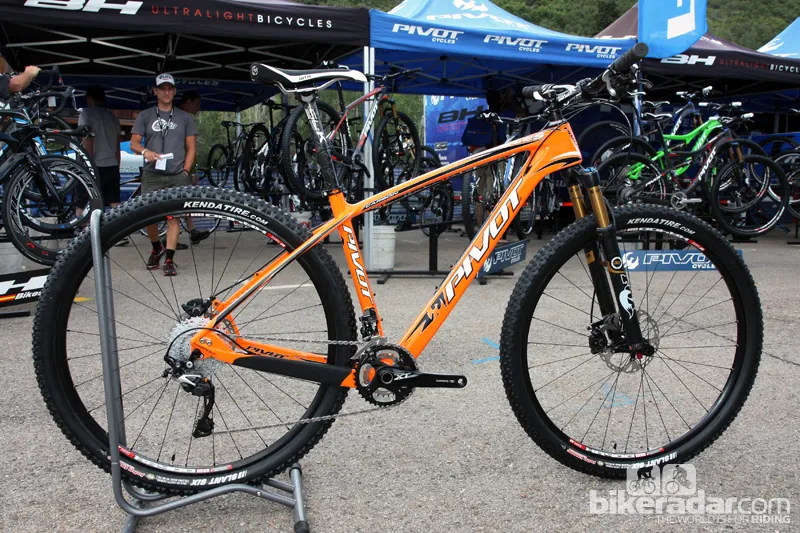
The Pivot Les carbon hardtail is also new for 2013
A bare frame will retail for US$1,999.
2013 BH road range gets more aero and less expensive
Highlighting BH's 2013 road range is an all-new G6 road machine, featuring an aero profile down tube, seat tube and integrated seat mast, and head tube for reduced drag.
In addition to supposedly cutting through the wind more efficiently, Cocalis said the G6 is also a whopping 50 percent stiffer than the old G5, bringing the new bike closer in line with the current Ultralight flagship.
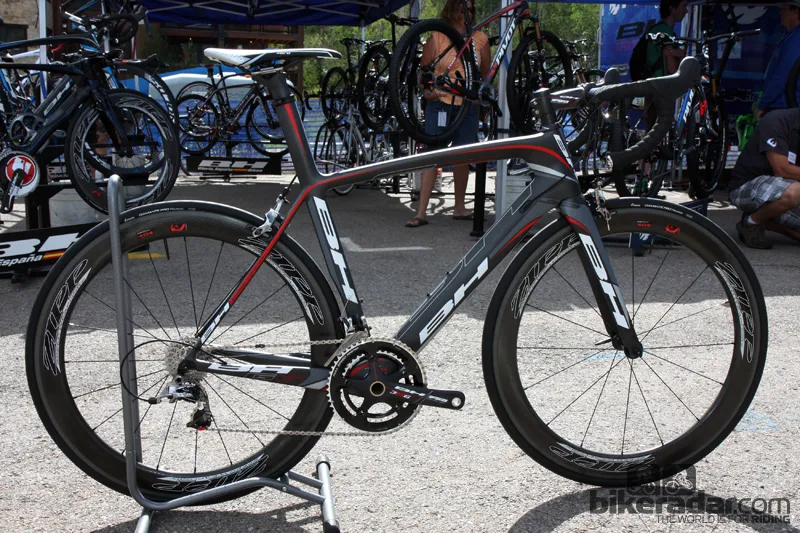
The 2013 BH G6 has been designed with aerodynamics in mind
Claimed frame weight is an impressive sub-900g, too, and the new bike will feature a tapered front end, an extra-wide BB386 Evo press-fit bottom bracket, and internal cable routing that's convertible for mechanical or electronic drivetrains. You also get carbon dropouts, and a ride quality that Cocalis described as firmer than the Ultralight but not objectionably so.
Retail price is set at US$3,299 for the frame, fork, seatmast head and headset. With a Shimano Ultegra group it will be US$4,999, while a new SRAM Red group and Reynolds Assault carbon clinchers will set you back US$7,499. Projected availability is around August or September 2012.
Speaking of the Ultralight, buyers who have been interested in that featherweight flagship but balked at the US$3,999 frameset price will appreciate a much cheaper Ultralight RC option.
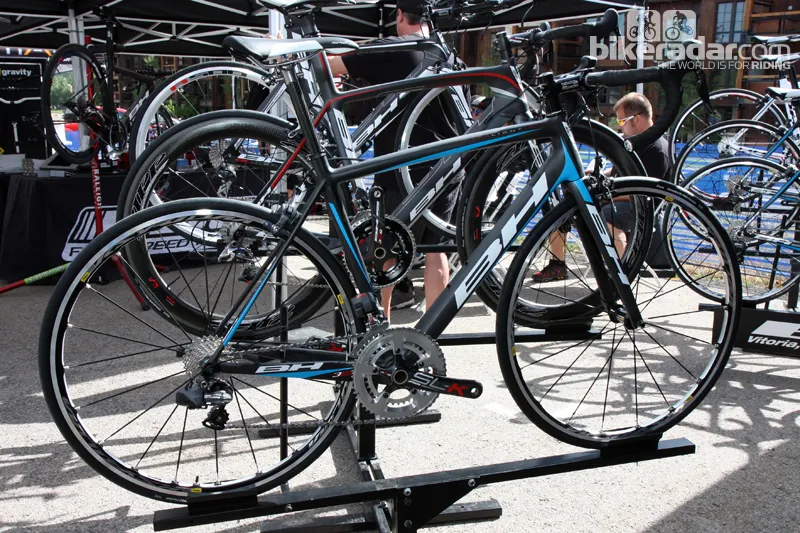
A fresh audience may be tempted to the cheaper Ultralight, the Ultralight RC
Built with a less expensive blend of carbon fiber but the same molds, the new RC gains 150g (but is still just 900g according to BH) while retaining stiffness values within five percent of the top model and gaining "much more" comfort than the full-blown Ultralight. Further cost savings will come with an all-carbon fork borrowed from last year's G5, which will tack on another 100g.
BH have pegged the retail price of the Ultralight RC at US$2,299 – a US$1,700 saving over the standard Ultralight. In fact, a complete Ultralight RC with Shimano Ultegra, at US$3,999, will cost the same as a bare Ultralight frame while only sacrificing 250g.
Time trial riders and triathletes get a striking new BH for 2013, too, albeit one with a less-than-creative name. The new BH Aero boasts a completely new frame and fork, built with various airfoil and truncated airfoil shapes that will supposedly produce less drag than the current model (wind tunnel testing hasn't been done yet).
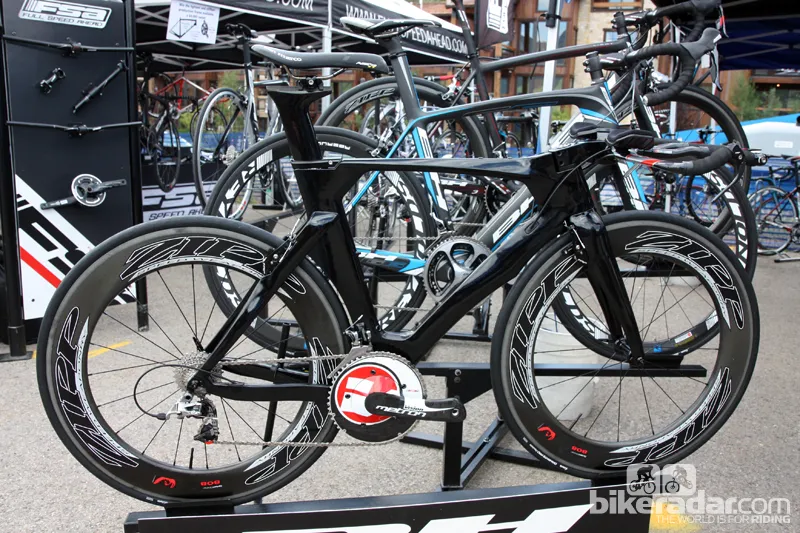
A prototype of BH's new Aero frameset on show at DealerCamp
Wind-cheating new shape aside, BH have done a good job of future-proofing the new Aero. Incorporated into the design is convertible internal routing for mechanical or electronic transmissions, and brake mounts for the standard TRP linear-pull arms or conventional center-mounted calipers. The rear end can also accept Shimano's new direct-mount standard.
BH also seem to have done a good job of factoring in fit considerations – an included carbon fiber stem can be flipped up or down without affecting how it blends into the raised top tube behind it. Also featured are 40mm of profiled headset spacers, available stem lengths of 80-110mm and a conventional 31.8mm bar clamp to provide a wide range of base bar options.
If all else fails, the Aero is built with a standard straight 1 1/8in steerer tube, so buyers can swap in other stems as needed.
Pricing on the Aero is still to be determined but BH estimate the bike will be available in January 2013.
Clever BH solution to cyclo-cross disc versus rim brake debate
With rim brake cyclo-cross bikes still sporting the long-standing 130mm rear hub spacing but disc-equipped bikes largely switching to the 135mm MTB standard, frame manufacturers have thus far been forced to pick one or another when cutting molds for new models.
BH's new RX Team CX, however, handily avoids the issue with a cleverly convertible system that works for either type of brake.
Ingeniously, the RX Team CX is built with swappable dropout inserts that will effectively make for an adjustable rear hub spacing on the same carbon fiber frame. In addition, the cantilever post mounts are completely removable, leaving only flush holes behind that will be concealed with snap-in cosmetic covers.
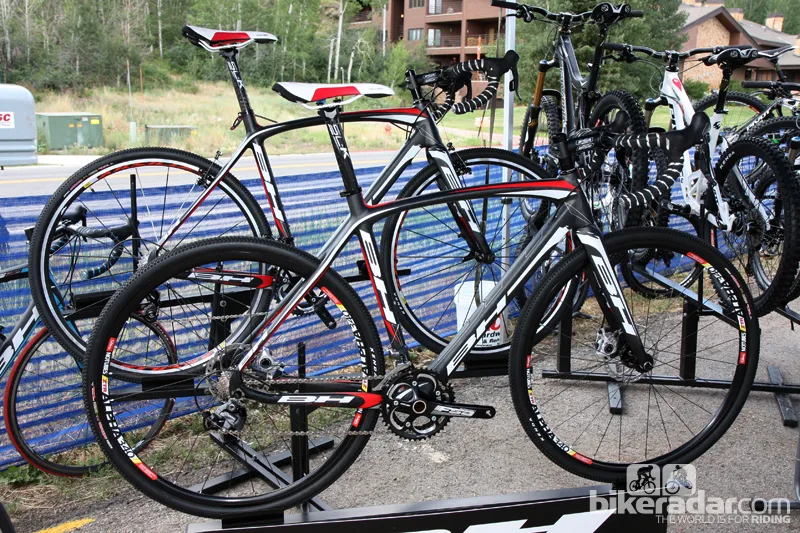
BH's clever RX Team CX cyclo-cross bike can be used with either rim or disc brakes
Even the rear rim brake housing stop is integrated into the seatpost collar, so disc-equipped bikes will only have to switch out that one small part.
As with most of BH's upper-end frames, the RX Team CX will feature convertible derailleur cable routing for electronic or mechanical drivetrains, a BB386 Evo bottom bracket shell and a tapered front end.
Geometry has also shifted away from the previous generation's Euro-style taller bottom bracket and shorter top tube in favor of a more American-style lower center of gravity and longer reach.
And – hallelujah – BH will begin shipping the new cyclo-cross models in just two weeks. Bare framesets will cost US$2,299, a complete Ultegra disc-equipped model will be priced at US$3,499 with NoTubes tubeless wheels, and a rim brake-equipped bike with SRAM Rival will set you back US$3,199.
